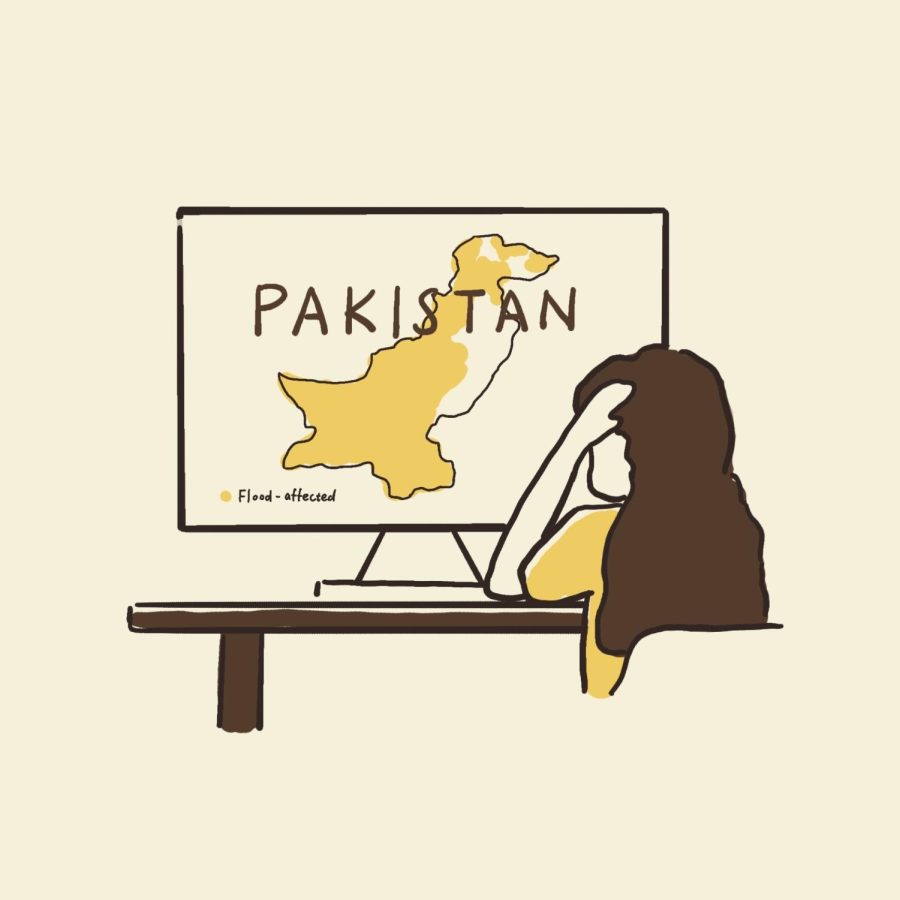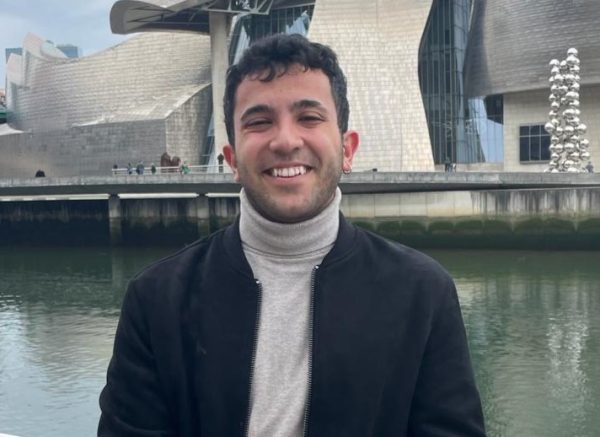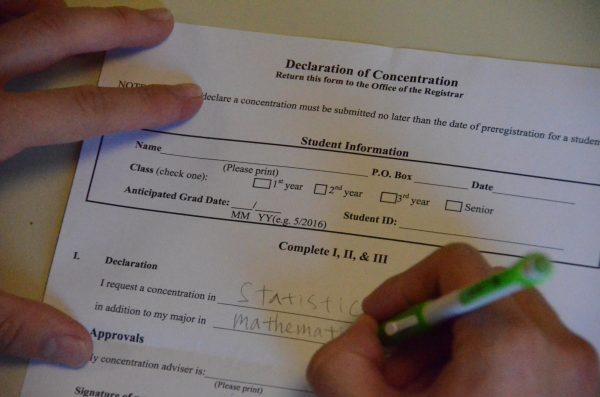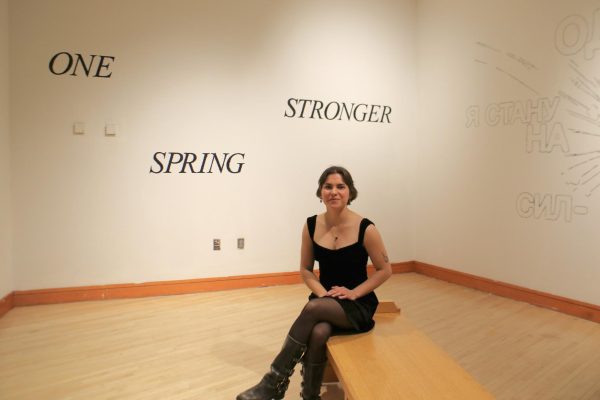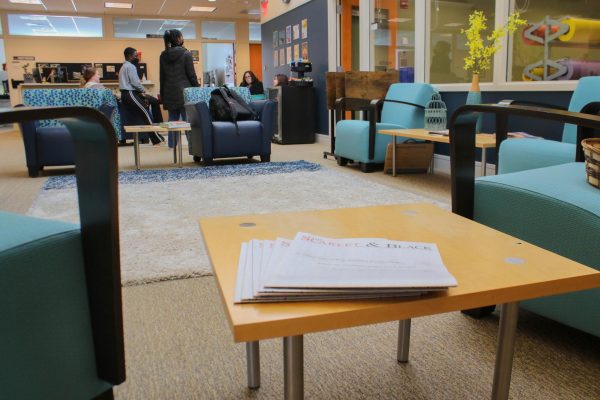“How are we going to recover from this?” Students alarmed as floods ravage Pakistan
September 12, 2022
Over 33 million people have been displaced, and 1,300 people have died in Pakistan as historic floods tore through the countryside, swept buildings and submerged over one-third of the country in “water everywhere as far as you could see,” according to Pakistan Prime Minister Shehbaz Sharif.
“It’s way worse than we’ve ever seen,” said Nameera Muhammad Dawood `23, an international student from Pakistan. “I called my mom just to make sure that they’re alive. I don’t know, I was just scared of the worst, you know?”
“Pakistan has witnessed unusually large monsoons, made large quite likely by climate change. Higher temperatures and more water vapor in the air cause more rain falls in shorter periods of time,” said Leif Brottem, Associate Professor of Global Development Studies. “The Pakistani people are especially sensitive to them due to the country’s geographical location and much of the people’s dependence on natural resources, livestock and land-based activities.”
The S&B met with all six Grinnell students who hold Pakistani citizenship and asked them to share their sentiments on the chaos back home.
“This is something massive, this is something different. It has completely destroyed a major part of the country,” said Hamza Ilahi `23. “I talk to my mom every day, and I just ask ‘how’s it going?’”
“It’s crazy how bad stuff is right now. My parents have already donated money. I have as well with [the] little cash that I got from working at D-Hall,” said Daanyal Ahmed `26.
“This is the first time I’ve seen flooding of this intensity. This is not something my country deserves in the slightest, given the financial challenges it has faced in the past few years,” Muhammad Khalid `26 wrote in an email to the S&B.
Once widely thought to become the next “Asian tiger,” Pakistan has found itself mired in financial crisis, according to Sharif. Depleting foreign exchange reserves, spiraling inflation and political instability have now placed the country on the verge of economic collapse with inflation hitting a fresh record for the sixth straight month in August.
Recent flooding is now expected to make things worse, according to Brottem. He anticipates a looming food crisis, and more significantly: mass loss of livelihoods.
He explains that food stores can be replaced with imports, but what really causes high food insecurity and even famine is when farmers and agricultural laborers lose their livelihoods. “If you’re getting paid a daily wage in order to work in a farmer’s field, but that farmer’s field gets destroyed, that daily wage to feed your family is all of a sudden gone,” he said.
Ekta Shaikh `24 is no stranger to flooding in her home. She comes from Karachi, a city in the Sindh province of Pakistan — one of the most affected provinces so far this year which received five to six times its 30-year average rainfall, according to the National Aeronautics and Space Administration.
“As I’ve grown up, I’ve seen weather patterns change around me and the quantity as well as the extent of rain increase,” said Shaikh. She said how she has had to repeatedly sweep flood water out of her house and has been “house arrested” for weeks waiting for floods to subside in her city. “We all realize and have seen how this is a very, very real problem,” added Shaikh.
“Pakistan is responsible for a very minuscule amount of the emissions,” said Brottem in what he called “a real climate justice issue.”
He said the issue stems from the greenhouse gas emissions that cause climate change, and that has been “historically produced by a small percentage of the population of consumers in mostly wealthy countries.”
“It’s surprising to believe that we have to bear the brunt of climate change when we aren’t even a major contributor,” wrote Khalid.
“Pakistan produces less than one percent in global emissions … as heartbreaking and alarming [as] the situation is, it should ring alarm bells for greater catastrophes that climate change can bring,” wrote Faheem Faheem `24 to the S&B.
Pakistan is now asking for global aid as its Planning Minister estimates the damage from the flood will be “far greater than $10 billion.”
“Helping pay for the repair of this should be seen as reparations, because we are not responsible for a lot of this damage,” said Dawood.
Brottem said that despite the massive damage, the international community is not providing as much aid as Pakistan is asking for.
The global response is “disappointing but not surprising” according to Shaikh. She said that what she is more disappointed about, however, is her college community. “I am disappointed in the Grinnell community in specific, the community that I exist in that claims to be diverse and inclusive,” she said.
After hearing the news, Shaikh and Dawood said they decided to take action and compile a list of ways to help. They said they intended to send the list through an all-campus email to students, but their request was denied.
“It’s hard to have the energy to be both involved in this and worried about the whole thing but then also to be wrestling with the school to even release a statement about this,” said Dawood. “It’s just insensitive … how do you make somebody empathize with a situation that speaks for itself?”
“I just literally started crying,” added Dawood.
In an email to the S&B, Maure Smith-Benanti, Assistant Vice President of Student Affairs & Dean of Inclusive Initiatives, expressed her condolences for the “awful” situation and wrote: “the Division of Student Affairs never sends emails of this nature out to campus — those are sent by the President’s office to the student list, the staff list and the faculty list.”
Smith-Benanti will be meeting with Pakistani students on Thursday, Sept. 8 to discuss the student’s frustrations over the College’s response.
The Office of International Student Affairs (OISA) has expressed condolences in its weekly newsletter labeled “FYI from the OISA” and reached out individually to all affected students.
“I know the college can do more to help, and they should,” said Ilahi. “Many great alums from this school are Pakistani. Kumail Nanjiani, the alum that you brand so much, is Pakistani. He is affected, his family back in Pakistan is affected.”
Ilahi continued, “Treat everyone as equal, treat all equal issues as important. Don’t just raise voice for an issue which is European or American-centric. The world is pretty big.”
“I’d be happy to learn more about the issues the students raised and see if there is a middle ground we can negotiate,” said Vrinda Varia, Assistant Chief Diversity Officer for Intercultural Student Life.
Both Islamic Relief and UNICEF are currently operating in Pakistan to provide relief through food aid, access to clean water and health services.
Dawood, Shaikh and Ilahi held a vigil service on Sept. 11 and said they want to generate further awareness campaigns.




























































